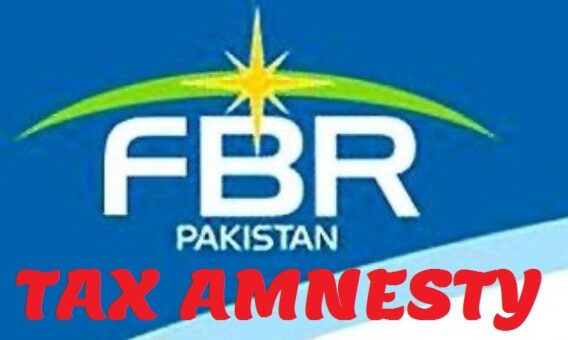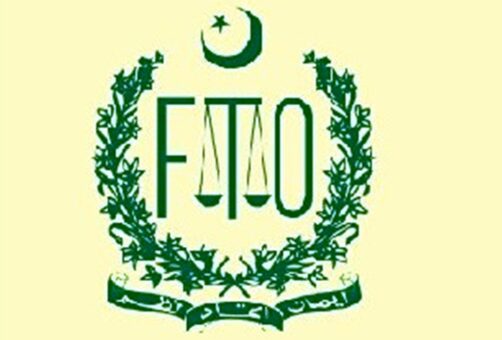ISLAMABAD: The Federal Tax Ombudsman (FTO) has launched investigation of over 12,000 pending cases of aggrieved taxpayers who could not avail amnesty scheme or Assets Declaration Scheme 2019 despite payment of due taxes before the deadline.
(more…)Tag: amnesty scheme
You can find all the stories related to amnesty scheme in this section. Pakistan Revenue committed to provide updated stories related to amnesty scheme.
-

Immunity under Section 111 is Tax Amnesty
KARACHI: Granting immunity from Section 111 of Income Tax Ordinance, 2001 is an amnesty, senior tax officials at Federal Board of Revenue (FBR) said. This section of the ordinance deals with unexplained income or assets. This section is powerful tool against concealed or black money.
This was made part to the ordinance as deterrence against tax evasion. However, respective governments frequently granted immunity from this section to classes of persons to whiten their ill-gotten money at the cost of genuine taxpayers.
PTI’s ruling government, which was very vocal against amnesty schemes and its chairman and sitting Prime Minister Imran Khan in the past on many occasion vowed to tighten noose around tax evaders instead giving such amnesties.
In contrast the PTI government in its less than two years granted a general amnesty in 2019 and now is going to grant blanked amnesty to construction sector despite realizing it was parking lot for black money.
It is lamentable the ministry of finance late last month issued Medium Term Budget Strategy Paper for year 2020-2023 in which it is clearly written: “Amnesty schemes will no longer be offered, and exemptions will be curtailed.”
Prime Minister Imran Khan on April 03, 2020 announced a package for construction industry and said: “those investing in the construction sector during the year 2020, would not be asked any queries about the source of their income.”
The story not ends here as the government is going beyond and reverting its decision and announced a fixed tax regime for builders and developers. The fixed tax regime is disaster for taxation system and in the last budget the government itself reinstated minimum tax regime in order to realize income tax from true income.
The Medium Term Budget Strategy Paper 2020/2023 also pointed out eliminating the final tax regime. “Gradual phasing out of Final Tax Regime will help in taxing real income,” it added.
Prior to Finance Act, 2019, persons involved in certain transactions were not required to pay tax on their actual income. Instead, the tax collected or deducted on such transactions was treated as their final tax liability.
“Since the tax deducted was final tax, therefore, such persons were not subjected to detailed scrutiny through audit,” according to Income Tax Circular 09 of 2019.
It further said the actual tax potential from such transactions is not realized due to presence of final tax regime.
Tax experts believed that the government was considered only one sector for granting amnesty and allowing immunity from questioning source of income. Granting such amnesty to a particular sector is against fundamental right and may be challenged in the court of law.
-

Amnesty declarants can pay tax at 20pc default surcharge by Dec 31
KARACHI: Persons / companies can avail amnesty scheme 2019 by paying 20 percent default surcharge by December 31, 2019 subject to declaration filed by due date.
Officials at Federal Board of Revenue (FBR) said that the scheme was promulgated through presidential ordinance on May 14, 2019 to allow the non-documented economy’s inclusion in the taxation system and serve the purpose of economic revival and growth by encouraging a tax compliant economy.
The amnesty was granted till on or before June 30, 2019 for a declaration only in respect of any –
(a) undisclosed assets, held in Pakistan and abroad, acquired up to June 30, 2018;
(b) undisclosed sales made up to June 30, 2018;
(c) undisclosed expenditure incurred up to June 30, 2018; or
(d) benami assets acquired or held on or before the date of declaration.
As per the time of payment, the scheme allowed the due date for payment of tax on or before June 30, 2019. However after the due date, the tax shall be paid on or before June 30, 2020 along with default surcharges.
If person fails to pay tax and default surcharge, the declaration made would be void and would be deemed to have never been made under the scheme.
The rate of tax for the amnesty scheme was:
01. All assets except domestic immovable properties at 4 percent
02. Domestic immovable properties at 1.5 percent
03. Foreign liquid assets not repatriated at 6 percent
04. Unexplained expenditure at 4 percent
05. Undisclosed sales at 2 percent.
The rate of default surcharge under the scheme has been set to increase by a default surcharge by amount percentage as specified following:
01. If the tax is paid after the June 30, 2019 and on or before September 30, 2019, the rate of default surcharge shall be 10 percent of the tax amount.
02. If the tax is paid after September 30, 2019 and on or before December 31, 2019, the rate of default surcharge shall be 20 percent of the tax amount.
03. If the tax is paid after December 31, 2019 and on or before March 31, 2020, the rate of default surcharge shall be 30 percent of the tax amount.
04. If the tax is paid after March 31, 2020 and on or before June 30, 2020, the rate of default surcharge shall be 40 percent of the tax amount.
-

FBR updates exchange rates for late payment by amnesty declarants
ISLAMABAD: Federal Board of Revenue (FBR) on Thursday updated daily exchange rates at Rs158.13 to the dollar for payment of taxes under Asset Declaration Scheme 2019 for those persons, who filed their declarations but failed to pay by due date.
The Asset Declaration Scheme 2019 was announced for around one month and it was expired on June 30, 2019. However, the government extended the date for three more days i.e. July 03, 2019 till the office working hours.
The individuals/companies availed the amnesty scheme by due date were required to pay on the prescribed rates.
The rate of taxes for undisclosed assets, sales or expenditures prescribed within due date as:
01. All assets except domestic immovable properties: 4 percent
02. Domestic immovable properties: 1.5 percent
03. Foreign liquid assets not repatriated: 6 percent
04. unexplained expenditure: 4 percent
05. undisclosed sales: 2 percent
However, the declarants have been allowed to make payment beyond the time limit of the scheme with additional default surcharge at the following rates:
01. If the tax is paid after June 30, 2019 and on or before September 30, 2019: 10 percent of the tax amount
02. If the tax is paid after September 30, 2019 and on or before December 31, 2019: 20 percent of the tax amount
03. If the tax is paid after December 31, 2019 and on or before March 31, 2020: 30 percent of the tax amount
04. If the tax is paid after March 31, 2020 and on or before June 2020: 40 percent of the tax amount.
The FBR is issuing exchange rate for the facilitation of the persons avail and filed their declarations up to July 03, 2019 to make payment with default surcharge.
-

Karachi Chamber urges FBR to adjust refunds of previous amnesty’s refunds
KARACHI: President Karachi Chamber of Commerce and Industry (KCCI) Junaid Esmail Makda, while referring to his conversation with Minster of State for Revenue Hammad Azhar and Member IR – FBR Dr. Hamid Ateeq Sarwar during meetings in Islamabad, stated that after listening to the grievances being faced by those individuals whose asset declaration cases were stuck up due to some IT glitches on last day of Amnesty Scheme 2018, the State Minister and Member IR suggested that five percent tax paid against the assets declared by such individuals can be refunded so that they could re-declare their assets in this year’s Asset Declaration Scheme.
In a statement issued on Tuesday, President KCCI pointed out that KCCI received numerous complaints about unprocessed cases of last year’s amnesty scheme in which although the individuals submitted their taxes well in time within the last date of the amnesty scheme but their cases were not processed in FBR’s portal and to date, the fate of all such cases has not be decided.
“KCCI has written numerous letters from time to time so that the issue could be resolved and the policymakers have been assuring to look into this issue but no relief has been provided so far”, he added.
He said that as the government was making all out efforts to make this year’s Asset Declaration Scheme successful, they must look into the possibility of providing relief to such individuals whose cases were not processed in last year’s Amnesty Scheme due to congestion in FBR’s portal or any other IT-related glitch.
Junaid Makda suggested that FBR should come up with a relevant notification in this regard in which they must announce refunds to such cases so that these individuals could quickly avail this year’s amnesty scheme.
He was fairly optimistic that keeping in view the government’s seriousness towards the Ease of Doing Business, the FBR would look into this matter and accordingly announce relief for such individuals as per commitment which would encourage many others to come forward to participate in this year’s Asset Declaration Scheme.
He was of the opinion that although the last date for Asset Declaration Scheme has been extended for three more days but it was not suffice and the government must extend it for at least 30 more days so that maximum number of people could avail this scheme which would prove beneficial for the national exchequer. “The business community remained heavily engaged in identifying budget anomalies, leaving a very little time to examine and look into the possibility of benefitting from Asset Declaration Scheme whose deadline has to be extended”, he added.
-

Amnesty scheme extended for three more days
ISLAMABAD: The government has extended the date for tax amnesty scheme for three days on the same day when IMF board meeting to be held to discuss and approve Pakistan loan program.
(more…)

